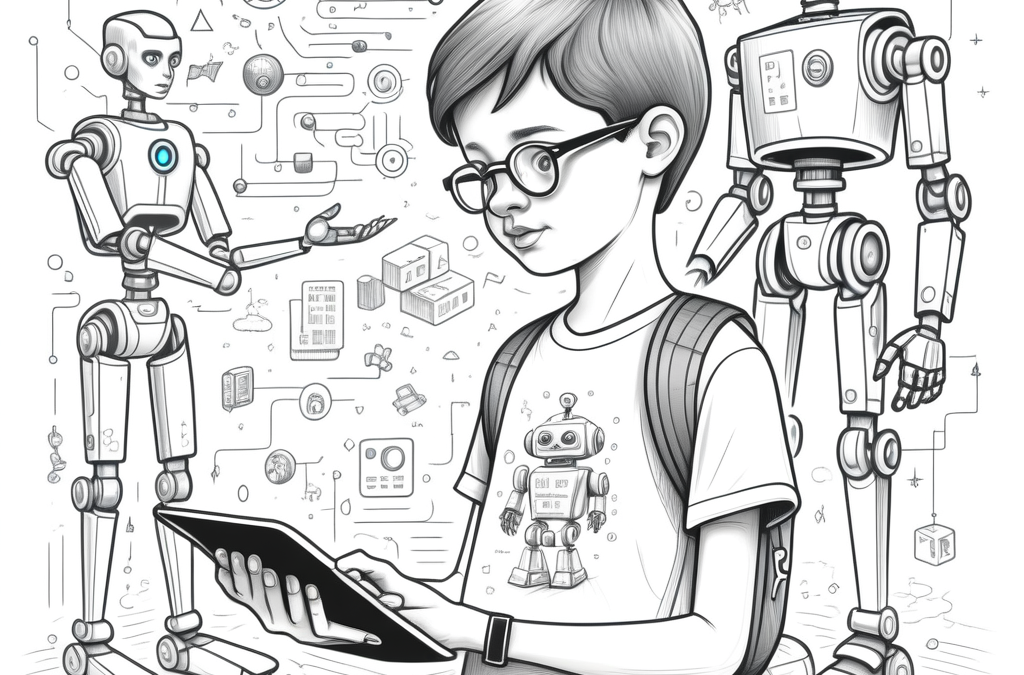Artificial Intelligence (AI) is no longer just a futuristic concept—it’s an exciting reality that’s already woven into our everyday lives! From video games that adapt to your playstyle to apps that know exactly what shows you’ll binge next, AI is everywhere. But have you ever stopped to think about the ethical implications of this incredible technology? For young tech enthusiasts like you, understanding the ethics of AI is vital because the very technology you’re fascinated by today will shape the world you live in tomorrow. As you embark on this journey through the ethics of AI, we’ll uncover why fairness, transparency, accountability, and privacy are crucial. With this knowledge, you’ll not only be a savvy tech user but also an advocate for a future where technology serves everyone fairly and responsibly.
Understanding AI: More Than Just Robots and Algorithms
Artificial Intelligence is a thrilling branch of technology focused on creating machines capable of thinking and learning like humans. AI isn’t limited to sci-fi movies; it’s part of our daily experiences:
- Healthcare: AI assists doctors in diagnosing medical conditions.
- Transportation: Self-driving cars use AI to navigate safely.
- Entertainment: Streaming services provide personalized recommendations based on your viewing habits.
These examples illustrate how AI transforms various sectors, making it essential to understand its implications.
Why AI Ethics Matter: Your Role in a Tech-Driven World
As AI continues to advance, it reshapes our world in significant ways. Here’s why understanding AI ethics is crucial:
- Influence on Society: AI systems impact jobs, healthcare, and justice, and the values of their creators can seep into these technologies.
- Future Responsibility: As you become innovators and leaders, grasping AI ethics empowers you to advocate for technology that benefits all.
Key Principles of AI Ethics: Fairness, Transparency, Accountability, and Privacy
Understanding the core principles of AI ethics is essential for navigating this landscape:
- Fairness: Ensure that AI systems treat everyone equally, preventing discrimination or bias. For example:
- In gaming, avoid penalizing players unfairly based on skill recognition.
- Transparency: Provide clear explanations of how AI makes decisions. This fosters trust and understanding among users.
- Accountability: Establish who is responsible when AI makes mistakes. This could be the developer, company, or the AI itself.
- Privacy: Safeguard personal information and understand how data is used. Advocate for your privacy rights and ensure AI respects your data.
Real-Life Lessons from AI: Responsibility, Empathy, and Balance
AI teaches us important moral lessons that can influence how we think and act:
- Responsibility: Use AI wisely and avoid over-reliance. This ensures you still develop critical skills.
- Empathy: Design AI with user feelings in mind, ensuring technology respects and understands human emotions.
- Balance: Strive for harmony between innovation and ethics. Consider the broader impact of your tech developments on society.
Sparking Discussions: Engaging Topics for Young Tech Enthusiasts
Here are some thought-provoking discussion topics for middle schoolers that can ignite curiosity about AI ethics:
- Debating the Pros and Cons of AI in Daily Life: Discuss how AI simplifies tasks but raises privacy concerns.
- Case Studies: AI Mistakes and Lessons Learned: Explore real-world examples of AI errors and their ethical implications, like facial recognition failures.
- Role-Playing Scenarios: Being an AI Developer: Assume different roles in a debate about ethical issues like algorithmic bias.
The Pivotal Role of Parents and Educators in AI Ethics Education
Educators and parents are crucial in guiding young minds through the complexities of AI ethics:
- Interdisciplinary Learning: Integrate AI ethics into subjects like computer science and literature to create relatable discussions.
- Facilitating Conversations: Encourage open dialogue at home about AI’s role in everyday life and its ethical considerations.
- Connecting with Resources: Help students access workshops and online courses focused on AI ethics.
Young Perspectives on AI Ethics: Shaping the Future Together
Today’s youth have a pivotal role in shaping the ethical landscape of AI due to their unique experiences and insights:
- Diversity Matters: Different backgrounds provide valuable perspectives on biases, leading to more equitable AI solutions.
- Critical Thinking: Encourage peers and the industry to question responsible innovation and its societal impacts.
Overcoming Challenges in AI Ethics: Tips for Young Learners
Navigating the world of AI ethics can be challenging, especially for teens. Here are some hurdles to consider:
- Misinformation: With a flood of information online, develop skills to identify credible sources and critically analyze content.
- Recognizing Bias: Understand that AI can reflect creator biases. Advocate for diverse data sets in AI development.
- Digital Boundaries: Establish healthy tech usage to reflect on the ethical implications of technology without constant distraction.
Conclusion: Your Role in Shaping Ethical AI
As we wrap up our exploration of AI ethics, remember that you, as a young innovator, have the power to influence how technology shapes our world. The principles of fairness, transparency, and accountability should guide your every decision as you dive into the tech landscape. By asking thoughtful questions about how AI impacts lives and advocating for diversity and inclusion, you’re setting the stage for a more equitable future. Embrace this exciting challenge with creativity and responsibility, knowing that your unique voice can drive positive change. The future of ethical AI is in your hands—let’s create a digital world that uplifts everyone together!


